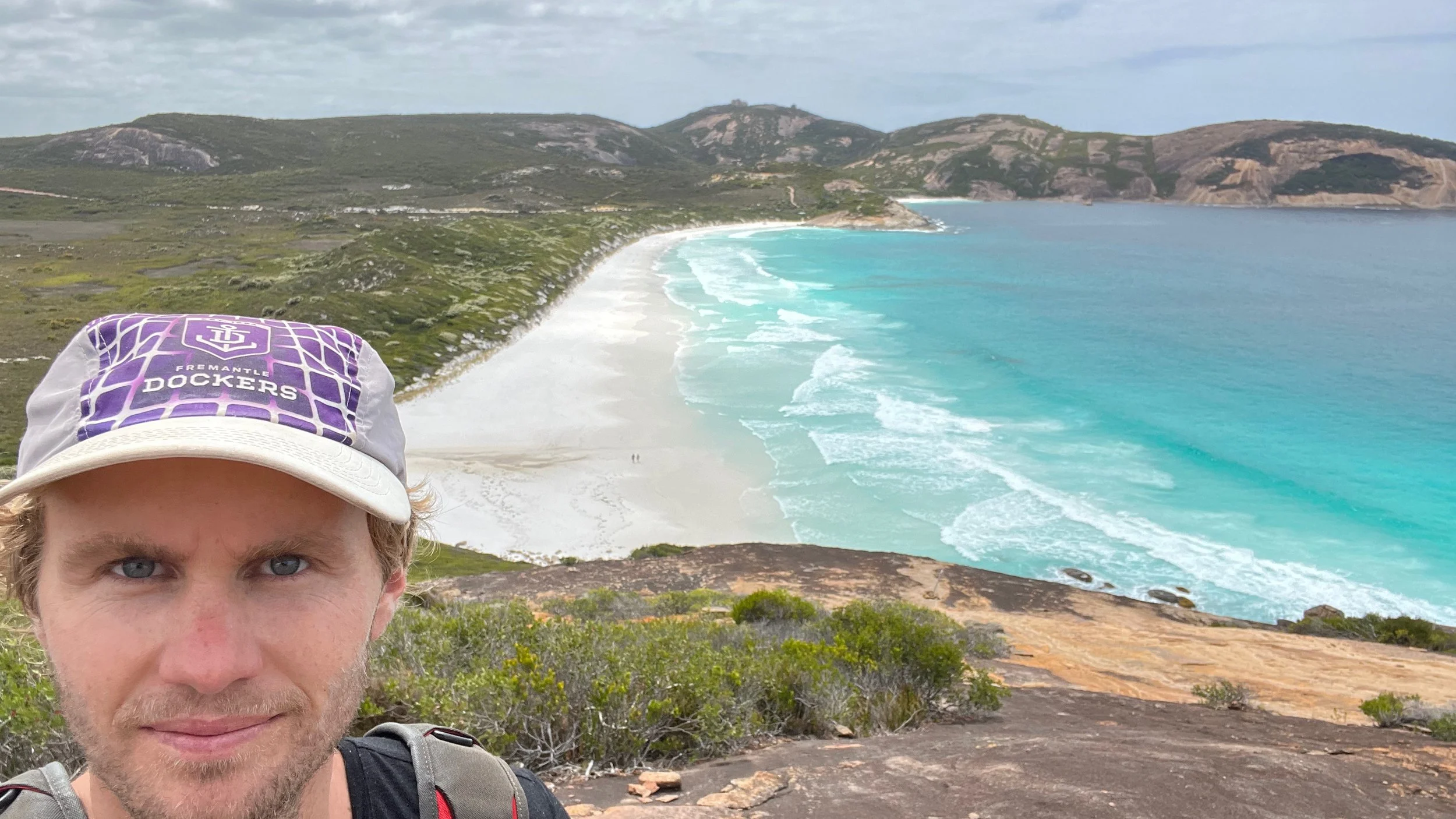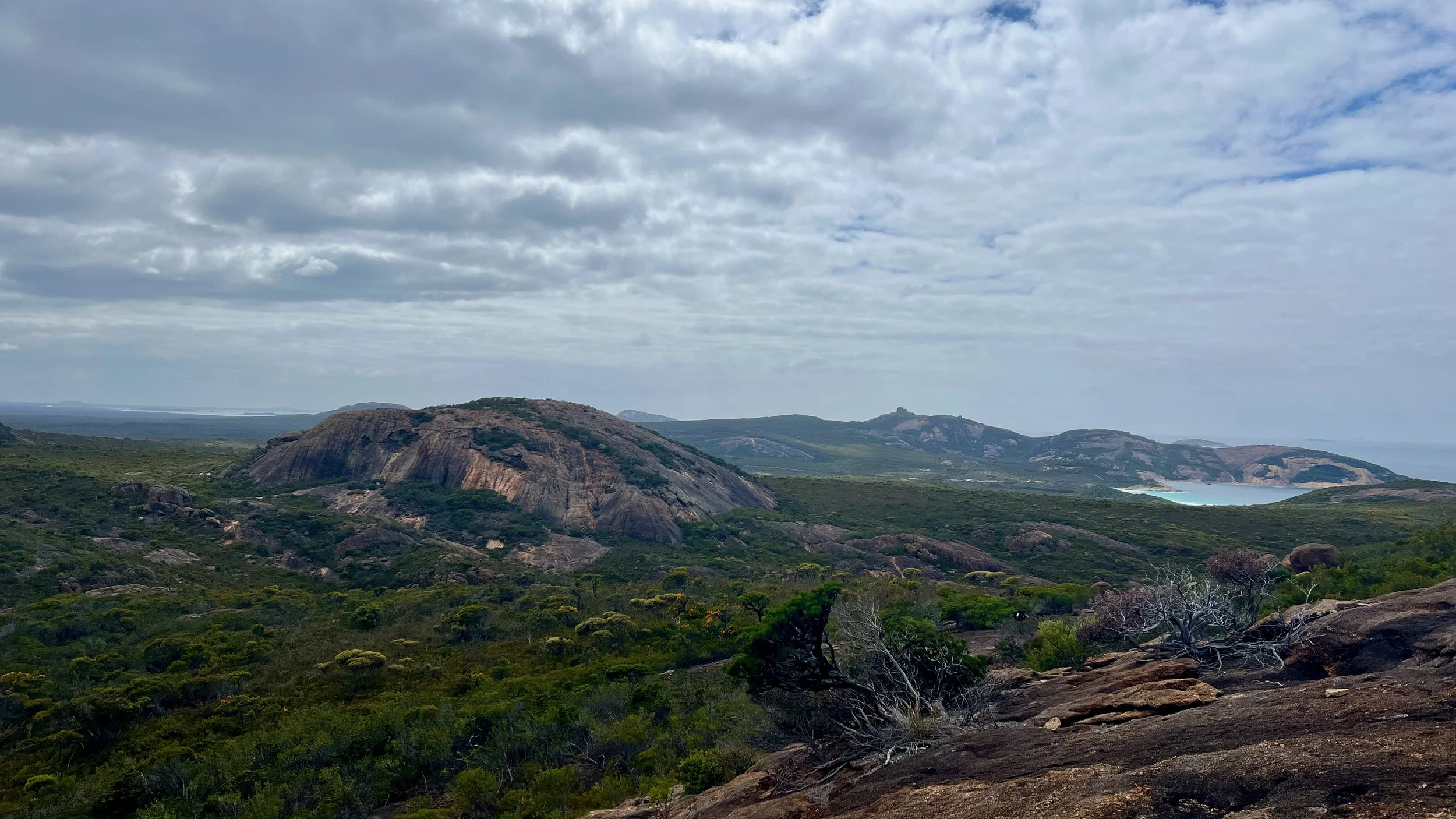On the Folly of Computers, in Nature
Philosophical and photographic highlights from a morning hike.
What happens when we simplify Nature through computers? Or, in other words: what happens when we attempt to understand, comprehend and communicate the infinite complexity of the natural world through the use of artificial intelligence, rather than our own?
What happens, for example, when I capture my walk this morning along the Hellfire Bay to Le Grande Beach trail on my fancy new iPhone 12?
Can I capture and translate the full experience of being immersed in Australia’s breathtaking and occasionally brutal southern coast landscape through HD snaps and selfies? Or would my unique experience simply be transformed into just another series of self-serving social media spam from another traverser/trespasser on that landscape?
Would you know how I was really feeling by the neutral facial expression I chose? Would you know if I was actually overwhelmed from awe and inspiration; would you know if I was still rattled by stepping next to that snake; would you know if I was only there to escape the current spiritually-debilitating state of society — to temporarily lighten the weight of the world; would you notice that slightly crooked smile — almost certainly the result of a reaction to childhood Jibby Jabbing — or are such kinks and malfunctions in the human body now so normalised we don’t even think or look twice?
Would you know if I chose a one-eyed selfie deliberately to signal to the Esperance Illuminated Freemasons — who presumably still have me on their radar after running and coming last in the recent Federal Election (technically second last, given the National Party candidate didn’t get on the ballot) — or if I was just fucking with everyone (again)?
Your conclusions would be fundamentally determined by your own existing perceptions of me, of my motivations and intentions, based on your own beliefs and biases. They would, in other words, be inherently subjective, founded in projection.
What if there was a particular story I wanted to tell you in these images? Would you know from these photos whether I walked the full length of the track to Le Grande Beach and back, or only halfway? Would you know if I walked it with someone else if they didn’t appear in those photos?
Now: we have a combination of your projection with my own deceit. What hope have we of finding truth?
Let’s take that same theory, and apply it to other current attempts to quantify, reduce and predict the natural world and our place in it.
You might end up with a situation where you close the world down and create potentially irreparable damage and division in society based solely on a “test”. What a “test” this is! A binary answer to your current state of health, your current suitability to be a sovereign individual, and the invisible threat to other members of society that you pose.
Let us never forget: this is a test that apparently tests for a unique deadly virus, even though the creators of that test didn’t have the genetic sequence for that virus when they created that test, but instead relied on computer modelling to fill in the gaps for this “unique” sequence. Would this test actually reflect the observable reality of nature, or would it inevitably turn into a blunt instrument of power used to justify whatever changes to society might be desired?
What if our AI-captured society had gotten to such a state that we had started to view ourselves — our own bodies — as computers, and we designed medical interventions within that worldview: a one-size-fits-all, periodic upgrade to our operating systems. When the inevitable consequences of this reductionist folly begins being exposed, would we listen, be humbled, be educated, and adapt accordingly?
Or… would we again resort to computers: to produce speculative models that decide for us that these interventions actually saved millions of lives! — wholly theoretical and hypothetical 7 digits of Saved Lives that can never be proven to have been saved, and that are produced only through the inputs of scientists with their own pre-existing beliefs and biases and reputations to protect.
I guess it wouldn’t be surprising: we have, after all, been using computer modelling to wrongly predict human-induced climate cataclysms for decades. Nonetheless, we must maintain faith that these latest round of models — spruiked by the same people who, fresh off getting the last 3 years spectacularly wrong, are now currently using them to (again) justify radically re-organising society — are right and accurate this time, and must be taken seriously accordingly.
That’s not to say that computers don’t have a role, that they can’t be useful. The truth is you can use computers to provide whatever outcome you desire — it is their inherent virtue, and their inherent vice. Maybe this is the best proof we have that we do indeed live in a Simulation: where else could realities so fundamentally at odds with each other exist side by side?
Create whatever reality you want to, however removed from the observable world of Nature that it might be: this is our inherent right as creators and manifesters. Just don’t expect others to come along with an artificially-created reality, and design their lives in accordance: that just might be your lizard brain speaking to you.







